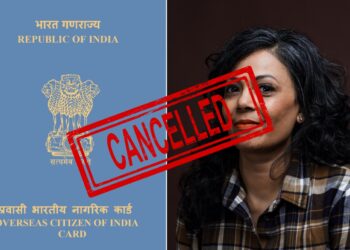India’s winemakers want safeguards against other countries exploiting loopholes.
India will only partially reduce import duty on Australian wine as part of the free trade agreement (FTA) being negotiated, and with a likely caveat that the imported items are above a minimum assessable value (MAV) to qualify for a duty cut, according to a report published in The Hindu.
“The Commerce Ministry has called for another round of talks with the wine industry in India to take inputs before finalising the offer,” the source told The Hindu BusinessLine.
“The Indian industry is not averse to the idea of including wines and spirits in the FTA but they have certain apprehensions that need to be taken care of,” a source following the deal closely said, according to the report.
Convincing India to lower the high 150 per cent import tariffs on wines and spirits is one of the top priorities for Australia in the on-going India-Australia Comprehensive Economic Cooperation Agreement (CECA).
“….there is nothing I would enjoy more than being able to provide India with some of Australia’s fine wines … at more affordable prices. That is something that we will be looking to achieve,” Australian Trade Minister Dan Tehan told the media in New Delhi late last year.
Follow NRI Affairs on Facebook and Twitter for latest updates. Support us on Patreon.
Both nations are currently working towards an ‘early harvest agreement’ that would precede the full fledged CECA, that will cover a large number of areas including goods, services, investments, intellectual property, e-commerce and government procurement. In an early harvest trade deal, both parties agree on a set of relatively easy-to-achieve deliverables by targeting specific goals such as tariff reduction and market access for select items while leaving out more contentious items for later.
“In order to qualify for concessions under the FTA, the regional value content of the product should be at least 70 per cent, i.e., at least 70 per cent of its value must have been created within the country it is being imported from,” said a letter sent to the Commerce Ministry by the Confederation of Indian Alcoholic Beverage Companies (CIABC), cautioning that adequate care should be taken to ensure that third country products are not able to take advantage of the pact with Australia.
CIABC also said India should insist on Australia removing non-tariff barriers on Indian exports such as not accepting whiskies made from spirit distilled from molasses, which is a common practice in a sugar rich country like India, adding that Australia should also stop insisting on a three-year maturity for whisky as in warm Indian climate whisky matures three times faster, and in three years’ time loses around 30 per cent volume due to evaporation.
“In response to Australia’s ask for tariff reduction on wines, we have suggested that the tariff may be brought down to 100 per cent from the current 150 per cent and to 50 per cent over 10 years, subject to a MAV of $3.5 per bottle or $5 per litre (bulk),” Vinod Giri, Director General, CIABC, was quoted in Business Line.
The major sticking points in the deal have been India’s reluctance to give market access for Australian dairy products and meat, apart from Australia’s own discomfort with opening up services exports to Indian firms, which entails the movement of people to Australia for employment. Apparently, New Delhi is not ready to give any major concession on agriculture and dairy products in the early harvest package as this would be one of its major negotiating chips for the full CECA.










